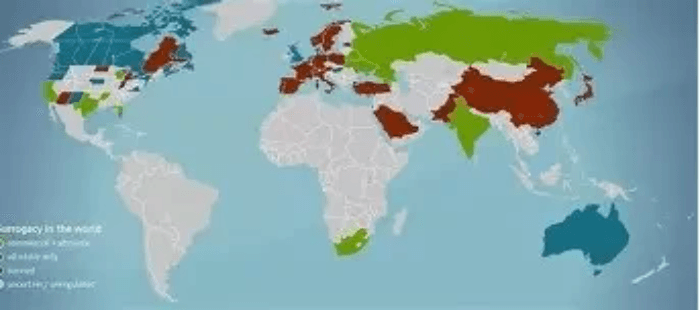In recent years, surrogacy has emerged as a transformative path to parenthood for countless individuals and couples around the globe. Whether due to medical infertility, same-sex partnerships, or personal choice, the journey to building a family through assisted reproductive technologies (ART) is deeply personal. Yet, beneath the surface of medical logistics and legal frameworks lies a more profound layer of influence: cultural tradition and familial expectations. These forces shape not only how surrogacy is perceived but also whether individuals feel empowered to pursue it.
Understanding the interplay between tradition, family dynamics, and surrogacy decisions is crucial for intended parents, medical professionals, policymakers, and support networks. This article explores how deeply rooted cultural beliefs and family values impact the decision-making process in surrogacy, and how modern society is gradually redefining what it means to be a "family."
1. The Cultural Tapestry of Surrogacy: A Global Perspective
Surrogacy is not a one-size-fits-all concept. Its acceptance, legality, and social perception vary dramatically across cultures and countries. In some societies, biological lineage and blood ties are paramount, making surrogacy—especially gestational surrogacy where the surrogate has no genetic link to the child—challenging to accept. In others, the emphasis is on the nurturing role of motherhood, which can make altruistic surrogacy more culturally palatable.
For example, in many traditional Asian cultures, particularly in countries like India and China, the concept of carrying on the family name through biological offspring is deeply embedded. Historically, this has led to immense pressure on women to bear children, especially sons. When infertility arises, the emotional and social toll can be significant. While India once emerged as a global hub for commercial surrogacy, tightening regulations in 2015 restricted the practice largely to altruistic, domestic arrangements, reflecting a complex negotiation between modern reproductive technology and traditional family values.
Conversely, in Western countries like the United States and Canada, where individual autonomy and reproductive rights are highly valued, surrogacy is often viewed as a legitimate and celebrated option. However, even in these regions, family traditions—such as religious beliefs or generational expectations about marriage and childbearing—can create internal conflict for intended parents.

2. Family Expectations and the Emotional Weight of Infertility
For many, the decision to pursue surrogacy is not made in isolation. It is often influenced by the expectations and opinions of close family members—parents, siblings, and extended relatives. In cultures where marriage and childbearing are seen as essential milestones, choosing surrogacy can be perceived as a deviation from the norm.
Consider a heterosexual couple facing male-factor infertility. In a traditional family setting, the husband may feel a sense of failure for not being able to "carry on the family line," while the wife might be blamed for the couple’s inability to conceive naturally. These gendered expectations can create emotional barriers to openly discussing surrogacy as an option.
Similarly, LGBTQ+ individuals and couples often face unique challenges. In families where heteronormative models of parenting are the standard, the idea of having a child through a surrogate can be met with confusion or resistance. A gay male couple using a gestational carrier and an egg donor may struggle to explain their family structure to older relatives who equate parenthood solely with biological motherhood and fatherhood.
Yet, there is a growing trend of families evolving in their understanding. Many intended parents report that once their families meet the child born through surrogacy, initial skepticism gives way to love and acceptance. The presence of the child often becomes the most powerful argument for the legitimacy of the family structure.
3. Religious Beliefs and Moral Dilemmas
Religion plays a pivotal role in shaping attitudes toward surrogacy. Different faiths offer varying interpretations of what constitutes ethical reproduction.
- Christianity: Views differ widely among denominations. The Catholic Church generally opposes surrogacy, viewing it as a separation of the procreative and unitive aspects of marriage. However, many Protestant denominations take a more permissive stance, especially if the process involves the couple’s own genetic material.
- Islam: Most Islamic scholars prohibit third-party reproduction, including surrogacy, as it introduces a "foreign" genetic element into the family line. However, some progressive interpretations allow altruistic surrogacy within close family networks, such as a sister carrying a child for her infertile sibling.
- Judaism: Jewish law (Halakha) has a nuanced perspective. While traditional interpretations may raise concerns about maternity (since the birth mother is often considered the legal mother), many modern Jewish authorities support surrogacy, especially when it enables a married couple to fulfill the religious commandment to "be fruitful and multiply."
- Hinduism and Buddhism: These traditions tend to be more flexible, emphasizing intention and karma. Surrogacy is often viewed as a compassionate act, particularly when it brings joy to a childless couple.
These religious perspectives can create internal conflict for intended parents who wish to honor their faith while also pursuing parenthood. Counseling with religious leaders and fertility specialists who understand cultural sensitivities can be instrumental in navigating these dilemmas.
4. The Role of Extended Family: Support or Stigma?
The involvement of extended family can be a double-edged sword. On one hand, grandparents, aunts, and uncles can provide emotional and financial support throughout the surrogacy journey. In some cultures, multi-generational households mean that elders play an active role in child-rearing, making their acceptance critical.
On the other hand, lack of understanding can lead to stigma. A common concern among intended parents is how to explain the child’s origins. Will the surrogate be acknowledged? How much should the child know about their conception? These questions are often shaped by family norms around transparency and privacy.
In collectivist cultures—such as those in Latin America, Africa, and parts of Asia—family honor and reputation are paramount. A child born through surrogacy might be seen as "less legitimate" if the community perceives the process as unnatural or morally questionable. This fear of social judgment can deter individuals from pursuing surrogacy altogether.
However, as awareness grows, so does empathy. Stories of successful surrogacy journeys are increasingly shared in media and community circles, helping to normalize the experience. Some families even choose to involve the surrogate in the child’s life, creating a blended kinship network that transcends traditional definitions.

5. Redefining Motherhood and Fatherhood in the Age of Surrogacy
One of the most profound impacts of surrogacy is its challenge to traditional definitions of parenthood. In a society where motherhood has long been tied to pregnancy and childbirth, surrogacy disrupts this narrative. The intended mother, who may never experience the physical sensations of carrying a child, must navigate questions of identity: "Am I still a real mother?"
Similarly, for fathers—especially in same-sex male couples—the journey to fatherhood through surrogacy can be both empowering and isolating. Without the biological connection of pregnancy, they may feel disconnected from the early stages of development. Yet, many report that bonding with the child after birth, supported by inclusive parenting practices, quickly dissolves these doubts.
Modern psychology increasingly supports the idea that parenting is defined by love, care, and commitment—not solely by biology or gestation. Attachment theory emphasizes the importance of emotional availability and consistent caregiving, both of which intended parents can provide regardless of how their child was conceived.
Educational campaigns and support groups play a vital role in reinforcing this message. By sharing personal stories and expert insights, they help shift public perception and empower families to embrace their unique paths.
6. The Influence of Media and Public Discourse
Media representation significantly shapes how surrogacy is understood. In the past, surrogacy was often sensationalized—portrayed in films and news stories as a controversial or even exploitative practice. Think of the 1988 "Baby M" case in the U.S., where a custody battle between a biological mother (who was also the surrogate) and the intended parents dominated headlines and fueled public fear.
Today, however, the narrative is shifting. Television shows, documentaries, and social media influencers are sharing more balanced and humanizing stories. Celebrities like Jimmy Kimmel, Neil Patrick Harris, and Elton John have spoken openly about building their families through surrogacy, helping to destigmatize the process.
Moreover, online communities and forums allow intended parents to connect, share experiences, and find solidarity. These digital spaces often become safe havens where cultural taboos can be discussed openly, and where traditional family expectations are gently challenged.

7. Bridging Tradition and Modernity: A Path Forward
The future of surrogacy lies in finding a balance between honoring cultural heritage and embracing reproductive innovation. This requires:
- Culturally sensitive counseling: Fertility clinics and agencies should offer services that respect religious and familial values while providing accurate medical information.
- Legal clarity and protection: Governments must establish clear, ethical frameworks that protect all parties—intended parents, surrogates, and children—while respecting cultural diversity.
- Education and dialogue: Schools, religious institutions, and community leaders can play a role in fostering open conversations about alternative family-building methods.
- Intergenerational storytelling: Encouraging families to share their surrogacy journeys with younger generations can normalize the experience and reduce stigma over time.
As more people choose surrogacy, the definition of "traditional family" is expanding. What was once seen as unconventional is becoming a celebrated expression of love and resilience.
8. Conclusion: Family Is What You Make It
At its core, the decision to pursue surrogacy is about the universal desire to create a family. While tradition and cultural expectations can present obstacles, they can also be sources of strength when reinterpreted in modern contexts. The beauty of surrogacy lies in its ability to honor both the past and the future—respecting ancestral values while forging new paths to parenthood.
For intended parents, the journey is not just about overcoming infertility or societal judgment; it’s about affirming that family is not defined by biology alone, but by the bonds we choose to nurture. As global attitudes continue to evolve, surrogacy stands as a testament to human ingenuity, compassion, and the enduring power of love.
Whether you are considering surrogacy, supporting someone who is, or simply seeking to understand this growing phenomenon, remember: every family has a story. And in the story of surrogacy, tradition and modernity are not opposites—they are partners in the creation of something truly extraordinary.

